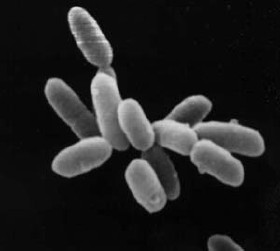When you consider the groundbreaking work of César Milstein in the development of monoclonal antibodies, it’s clear that Latin American scientists have made indispensable contributions to the global scientific community. These innovators have not only pushed the boundaries of knowledge in fields like medicine, physics, and environmental science but also paved the way for new technologies and treatments that impact our lives daily. From Nobel Prize laureates to unsung heroes, their stories are a proof to the rich scientific heritage and ongoing influence of Latin America on the world stage.
This begs the question: what other breakthroughs and discoveries have Latin American scientists contributed, and how might their future endeavors shape our understanding of the world?
Pioneering Medical Breakthroughs
Countless Latin American scientists have revolutionized global healthcare with their groundbreaking medical discoveries. Their contributions to scientific research are not just remarkable; they’ve fundamentally altered how the world approaches medical breakthroughs. Take, for instance, Dr. César Milstein from Argentina. His pioneering work on monoclonal antibodies didn’t just earn him the Nobel Prize in 1984; it transformed medical research, paving the way for treatments of diseases once thought incurable.
Then there’s the Mexican-American botanist Ynés Mexía, who ventured into uncharted territories to collect over 1500 plant species. Her dedication expanded the horizons of botanical research, significantly contributing to environmental conservation and the exploration of plant-based medicines. And let’s not forget about the Cuban epidemiologist Carlos Juan Finlay, whose relentless investigation into yellow fever transmission has saved countless lives in Panama and Cuba.
These Latin American scientists have made indelible marks on global science. Their work transcends borders, embodying a shared human endeavor to understand and improve health. Through their medical breakthroughs, they’ve not only advanced healthcare but also showcased the critical role of diversity in fostering scientific innovation.
Advancements in Physics
Latin American scientists’ contributions to the field of physics have been monumental, ranging from Nobel Prize-winning discoveries to innovations that have reshaped our understanding of the universe. You’ve probably heard of Luis Walter Alvarez, a luminary who clinched the Nobel Prize in Physics in 1968. His work, alongside other Latin American physicists, has laid a foundation that spans theoretical research to practical applications, enriching fields like nuclear physics, particle physics, and quantum mechanics.
Their advancements don’t stop there. These scientists have played pivotal roles in groundbreaking discoveries, including the development of the hydrogen bubble chamber and enhancements to radar systems. This research has not only expanded our grasp of the fundamental laws that govern the cosmos but also pushed us to explore new scientific frontiers.
Today, Latin American physicists are relentless in their pursuit of knowledge, working collaboratively with international peers and contributing significantly to global research initiatives. Their contributions continue to drive advancements in physics, ensuring the field remains at the forefront of uncovering the mysteries of the universe. You’re witnessing a legacy of innovation, one that promises to keep pushing the boundaries of what we comprehend.
Innovations in Chemistry
Shifting gears to chemistry, you’ll find that Nobel laureate Mario J. Molina’s groundbreaking work on the ozone layer’s depletion highlights the substantial impact of Latin American scientists in this field. Their innovations in chemistry are not just a footnote in scientific journals; they are pivotal chapters in the story of global scientific progress. Latin American chemists have been instrumental in driving forward a myriad of innovations that have reshaped industries, healthcare, and environmental strategies worldwide.
Here’s a glimpse into their global contributions:
- Revolutionizing Biomedical Research: Dr. César Milstein’s work on monoclonal antibodies has opened new horizons in diagnostics and therapeutic strategies, significantly advancing pharmaceutical development.
- Advancements in Environmental Protection: Their research has spurred advancements in understanding chemical processes affecting the environment, though specific environmental contributions are a topic of their own.
- Materials Science Breakthroughs: Latin American scientists have been at the forefront of developing new materials and chemical processes, enhancing the performance and sustainability of various products.
- Fostering International Collaborations: Their discoveries have not only enriched scientific knowledge but have also fostered global collaborations, inspiring future generations of scientists across the world.
These contributions underscore the pivotal role Latin American scientists have played in propelling chemistry and its applications forward, marking their indelible impact on global innovations.
Contributions to Environmental Science
Diving into the domain of environmental science, you’ll discover that scientists from Latin America have played a critical role in pioneering solutions for our planet’s most pressing ecological challenges. Their research has not only led to innovative conservation efforts but has also addressed the challenging challenges posed by climate change. By uncovering new species and advocating for the preservation of ecosystems, they’ve greatly contributed to the richness of biodiversity.
Here’s a snapshot of their contributions:
| Effort | Impact | Area |
|---|---|---|
| Discovery of New Species | Enriched Biodiversity | Conservation |
| Preservation of Ecosystems | Maintained Natural Habitats | Biodiversity |
| Sustainable Practices | Reduced Environmental Footprint | Climate Change |
| Research on Deforestation | Highlighted Loss Effects | Environmental Science |
| Policy Advocacy | Shaped Global Sustainability | Conservation |
Their work underscores the importance of preserving our environment, highlighting how deforestation, pollution, and habitat destruction can have far-reaching consequences. Through collaborations with international bodies, Latin American scientists have been at the forefront of shaping policies and promoting sustainable development practices worldwide. Their dedication to environmental science serves as a beacon of hope, guiding global efforts towards a more sustainable and biodiverse future.
Breakthroughs in Astronomy
In the expansive field of astronomy, scientists from Latin America have played pivotal roles, pushing the boundaries of what we comprehend about the universe. You’ve witnessed their tireless efforts translate into remarkable breakthroughs, enriching our collective astronomical knowledge. Their journey in unraveling the mysteries of space has been marked by several key accomplishments:
- Discovery of New Celestial Bodies: Latin American scientists have revealed new stars, galaxies, and other celestial phenomena, expanding our celestial catalog and deepening our understanding of the cosmos.
- Groundbreaking Research in Astrophysics: Their contributions have significantly advanced the study of black holes, dark matter, and the origins of the universe, offering insights into some of the most profound questions in science.
- Active Participation in International Collaborations: By joining forces with international observatories and scientific teams, Latin American astronomers have bolstered global research efforts and contributed to pivotal discoveries that have shaped our understanding of the universe.
- Advancements in Cosmology: Their work in cosmology has illuminated aspects of the universe’s formation and evolution, providing a clearer picture of our cosmic origins and destiny.
Through these endeavors, Latin American scientists have cemented their place in the global astronomy community, showcasing the invaluable contributions of diverse perspectives to the pursuit of knowledge.
Discoveries in Biology
Latin American scientists have remarkably contributed to our understanding of life’s complexity through groundbreaking discoveries in biology. You’ve likely heard less about these scientists than you should, considering their work has profoundly advanced our knowledge in genetics, ecology, and microbiology. Their relentless pursuit of understanding biodiversity and evolutionary patterns has not just filled scientific literature but has genuinely shaped the direction of global research in various disciplines.
| Field | Contribution | Impact |
|---|---|---|
| Genetics | Unraveled complex genetic patterns | Paved the way for breakthroughs in disease research |
| Ecology | Studied unique ecosystems and identified new species | Enhanced global conservation efforts |
| Microbiology | Advanced understanding of disease mechanisms | Influenced the development of new treatments |
Their dedication to studying life in all its forms has led to the identification of new species, offering insights into the planet’s incredible biodiversity. By examining unique ecosystems, these scientists have not only contributed to our understanding but have also played a critical role in global conservation efforts. The discoveries made by Latin American scientists in biology continue to enrich scientific collaboration and inspire future generations to explore the mysteries of the natural world.
Technology and Engineering Feats
Moving beyond their groundbreaking work in biology, scientists from Latin America are also making significant marks in the fields of technology and engineering. Their contributions are not only innovative but are paving the way for future advancements in various sectors. Here’s how they’re making a difference:
- Development of Low-Cost Ventilators: In Brazil, the creation of INSPIRE, a low-cost ventilator, stands out as a critical contribution during global health crises, showcasing the region’s ability to respond with effective engineering solutions.
- Advancements in Synthetic Biology: Dr. Mario Alberto Martínez from Mexico is at the forefront, utilizing synthetic biology to explore new bacterial organisms. His work aims at ecological restoration by creating new genetic circuits, demonstrating the potential of combining technology and biology for environmental benefits.
- Research in Nanostructures: Costa Rica’s Dr. Sergio Paniagua is making strides in engineering nanostructures that create bacteria-free surfaces. This innovation has the potential to drastically reduce intrahospital contagion, with broad implications for public health safety.
- Utilization of Nanotechnologies: Across Latin America, scientists are leveraging nanotechnologies to combat virus spread and enhance operational success. Dr. Alejandro Fracaroli’s work in Argentina on metal-organic frameworks for air filtration illustrates the regional commitment to using technology for societal good, including air quality improvement and pollution control.
These feats in technology and engineering underscore Latin America’s vibrant and impactful contribution to global science, from synthetic biology to nanotechnologies.
Exploration of the Human Genome
Delving into the mysteries of the human genome, scientists from Latin America have made groundbreaking discoveries that reshape our understanding of genetics and disease. Their work in genetic research has not only advanced our knowledge but also highlighted the rich genetic diversity within the region. By identifying genetic markers for diseases prevalent in Latin America, these scientists are paving the way for personalized medicine, ensuring treatments are more effective and tailored to the individual’s genetic makeup.
Their contributions extend beyond disease prevention. Through genomic sequencing, they’ve provided invaluable insights into population migrations, helping to piece together the complex tapestry of human history in the region. This work enriches our global genomic databases, offering a more detailed view of human genetic diversity.
| Contribution Area | Impact |
|---|---|
| Disease Prevention | Discovery of genetic markers for regional diseases, aiding in personalized medicine development. |
| Genetic Diversity | Identification of unique genetic variations, enriching global genomic databases. |
| Population Migrations | Insights from genomic sequencing elucidate migration patterns and evolutionary history. |
| Global Collaboration | Participation in international research teams, contributing valuable data to global efforts. |
Through these endeavors, Latin American scientists have advanced the global understanding of human genetics, illustrating the importance of diverse perspectives in the scientific community.
Climate Change Research
Building on their profound impact in genetic research, scientists from Latin America have also made significant strides in understanding and combating climate change. Their contributions are important in the global effort to address this pressing issue. Here’s how they’re making a difference:
- Deforestation and Carbon Emissions: They’ve conducted important research on the Amazon rainforest, revealing the severe implications of deforestation, biodiversity loss, and carbon emissions. This work lays the foundation for global strategies to preserve our planet’s lungs.
- Vulnerable Communities: Latin American scientists have shed light on how climate change disproportionately affects the region’s most vulnerable communities. They emphasize the urgent need for adaptation and mitigation strategies to safeguard these populations.
- Innovative Solutions: They’ve pioneered sustainable practices and technologies, including renewable energy solutions and conservation initiatives that leverage local knowledge. These innovations are pivotal in the global fight against climate change.
- International Collaborations: By partnering with scientists worldwide, Latin American researchers have expanded our understanding of climate change. These collaborations are instrumental in fostering a unified approach to environmental challenges.
Latin American scientists are at the forefront of climate change research, making indispensable contributions to global science and advocating for meaningful climate action. Their work not only highlights the unique challenges faced by the region but also offers hope through innovative solutions and international cooperation.
Agricultural Innovations
In the domain of agricultural innovations, Latin American scientists are revolutionizing how we enhance crop yields and guarantee sustainability. They’re not just tweaking the edges; they’re overhauling the system by integrating advanced agricultural techniques with traditional knowledge. By focusing on indigenous farming practices, they’re tapping into centuries of wisdom to promote crop diversity and soil conservation, ensuring that the land remains fertile and productive for generations to come.
These scientists have made groundbreaking discoveries, including new plant species that offer medicinal benefits and possess natural resistance to pests and diseases. This isn’t just about increasing the variety on your plate; it’s about securing the future of food, making crops more resilient to the challenges posed by climate change and reducing dependency on harmful pesticides.
Additionally, through the power of genetic engineering and biotechnology, Latin American researchers are pushing the boundaries of what’s possible in agriculture. They’re enhancing agricultural productivity in ways that prioritize sustainability, ensuring that our farming practices don’t just feed the present but also safeguard the future. Their contributions are pivotal, influencing global food security, biodiversity conservation, and the adoption of sustainable farming practices across the world.
Conclusion
You’ve seen how Latin American scientists have revolutionized fields from medicine to astronomy, making groundbreaking contributions that resonate worldwide. Their pioneering work not only advances our understanding across various sciences but also paves the way for future innovations. Whether it’s combating diseases, exploring the stars, or fighting climate change, these scientists’ relentless pursuit of knowledge and innovation inspires us all. Their achievements underscore the critical role Latin America plays in driving global scientific progress and shaping a better future for everyone.






